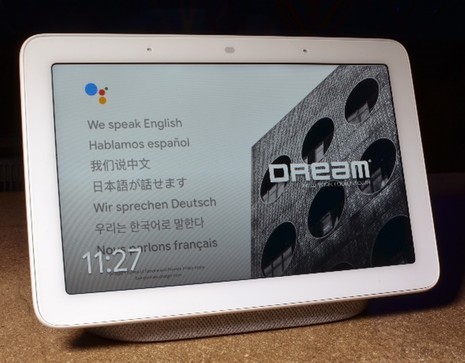




"Service with a smile" has always been a common hospitality practice in the United States. Welcoming some international guests with this non-verbal cue, however, can be problematic. In Japan, a smile often conveys anger, sadness, or embarrassment rather than joy or friendliness. In Russia, smiling at a stranger is considered insincere and impolite. In the U.S., people nod their heads in agreement or acknowledgment; in Greece, Turkey, and other nearby nations, a single nod of the head upward actually means "no." And forget offering international visitors a thumbs up. For many cultures, this gesture is vulgar and rude rather than a sign of agreement or confirming that all is well. Because hoteliers don't want their front desk and Concierge staff to remain stern-faced with their hands at their sides when greeting international guests, and they can't expect workers to learn how to say "hello" in all languages, hotel operators are leveraging voice technologies to help them be more welcoming and hospitable. Considering that in 2018, 39.9 million of the 79.6 million U.S. arrivals came from countries other than Canada (21.2 million) and Mexico (18.5 million), according to the U.S. Travel Assn, investing in voice translation technologies should be top of mind. With Gartner predicting that by 2020, 85% of relationships with businesses will not require human interaction, it's clear that hoteliers need to embrace artificial intelligence (AI) today if they are going to effectively engage with their global customers in the future. Consider this:
The Google Assistant's interpreter mode + Volara is Speaking Your Guests' Language
Equipping hotels with voice assistant technologies is just the first step. Google has recently launched a hospitality-grade voice translation technology spanning 29 languages that is now being made available to hotels worldwide through a distribution and implementation partnership with Volara. The Google Assistant's interpreter mode is designed to improve the quality of interactions between hotel staff and guests from diverse language backgrounds, resulting in better communications and higher-value service.
Here's how it works. Hotels place Google Nest Hub devices - provisioned by Volara with enterprise grade management tools and custom branded hotel content - at their front desks or Concierge stations. Then, when foreign-speaking travelers arrive, the staff member simply says, "Hey Google, help me speak English/Japanese/Chinese," or "Hey\ Google, be my English/Japanese/Chinese interpreter." Then, the Google Assistant's interpreter mode will - in real time - translate the conversation both verbally and visually, removing the language barrier between the guest and the hotel staff (see a demo here). For a small annual fee per location, hotels will receive a hassle free powerful multilingual solution:
Rather than losing revenue to poor communications, technologies such as the Google Assistant's interpreter mode + Volara will help U.S. hotels attract, and build loyalty with, at least 80% of today's travelers - i.e., those that don't speak English. This not only makes foreign guests feel more welcome, but it will improve operations, personalize services, drive revenues, and meet the individual needs of all guests.
Contact
David Berger
CEO
Email: db@volara.ai
Organization
Uniguest
https://volara.io
450 Lexington AvenueFloor 4 (WeWork)
USA
- New York, NY 10017
Phone: 917-573-0529
Email: db@volara.ai
Recent News
 Uniguest launches Google Cast support on Samsung Hospitality TVs Uniguest launches Google Cast support on Samsung Hospitality TVs |
 Uniguest Announces Reseller Partnership with PureHD to Expand Hotel Hub Solutions in North America Uniguest Announces Reseller Partnership with PureHD to Expand Hotel Hub Solutions in North America |
 Luxury Meets Digital Innovation at Newport Harbor Island Resort Luxury Meets Digital Innovation at Newport Harbor Island Resort |